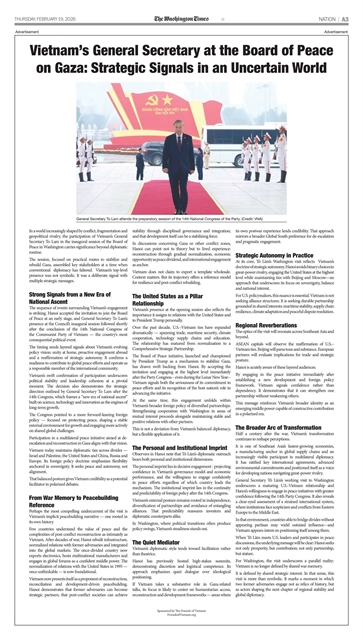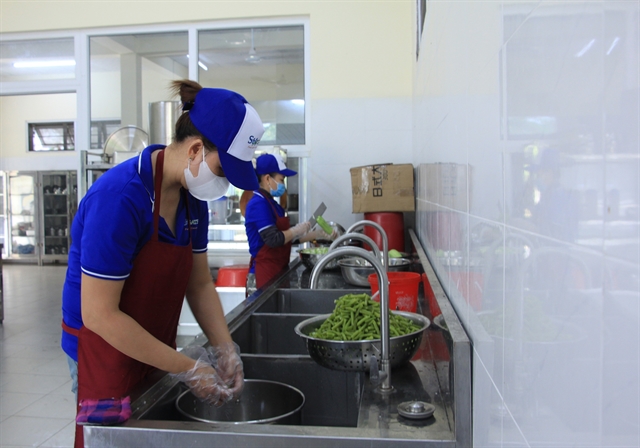 Society
Society


|
| Kitchen staff prepare food at a school's canteen in Khánh Hòa Province. — VNA/VNS Photo Phan Sáu |
HÀ NỘI — With the number of food poisoning cases on the rise in the past year, food safety officials have stressed the coordination between authorities and departments to ensure public health.
In 2024, the country recorded over 130 cases of food poisoning, killing 23 and affecting more than 4,700 people in total, according to a report from the Ministry of Health (MoH).
Compared to the same period last year, the number of cases increased by nearly 10, but 2,600 more people were affected.
Most of the cases occurred in common dining rooms and eateries inside schools and companies, with bacteria such as Salmonella, E. coli and Bacillus cereus identified as the main causes.
Improper food preparation and storage provide ideal conditions for the growth of these microorganisms.
Meanwhile, several cases were linked to toxins from unusual dishes such as pufferfish, wild mushrooms and toads. When these foods are improperly prepared, they can cause severe poisoning.
Other causes include the use of unsafe chemicals in food production and processing.
While the number of food poisoning cases has increased in recent years, Deputy Director of the Việt Nam Food Administration (VFA) Nguyễn Hùng Long said that the situation has improved compared to a decade ago, when some tens of thousands of people were affected annually.
“That is not an excuse, but to demonstrate that the number of mass food poisoning cases has decreased significantly thanks to efforts from relevant authorities and better awareness among business owners,” said Long.
To address the pressing issue of recent mass food poisoning cases, the MoH has strengthened inspection and monitoring at food processing facilities, especially in common kitchens.
To ensure public health during the upcoming Tết (Lunar New Year) 2025, the Central Inter-Ministerial Steering Committee on Food Safety plans to establish five inspection teams in 10 major cities and provinces, focusing on high-risk food items such as meat, fish, eggs, candied fruits and sweets, alcoholic beverages and carbonated drinks.
The VFA will also apply technology in origin tracing, which helps with early detection of risks to ensure food quality and prevent poisoning cases.
Staff at food processing facilities need to receive training on hygiene and food safety procedures, while consumers need to receive guidelines on how to select, store and properly prepare food, he said.
Facilities that violate food safety and hygiene regulations should be strictly punished according to the law, ranging from suspension of operations to heavy administrative fines, he added.
VFA director Trần Việt Nga also said that to manage food safety and reduce mass food poisoning cases, collaboration between ministries responsible for health, trade and agriculture is essential, along with local authorities and social organisations.
This can help optimise resources for inspection and supervision, ensure violations are handled promptly and promote education efforts to raise public awareness.
When food poisoning cases occur, coordination between agencies can help implement solutions quickly to prevent widespread incidents. — VNS